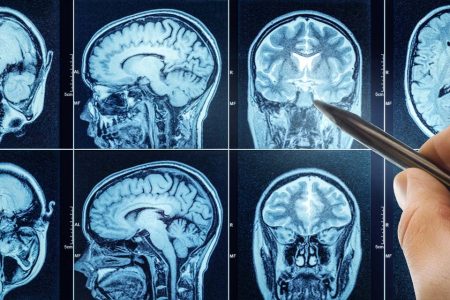The human brain thinks at a mere 10 bits per second, far slower than the average wi-fi speed. That’s according to new calculations published last month in the journal Neuron and reported in Smithsonian Magazine.
The authors examined a series of scientific papers about feats of cerebral speed to calculate how quickly the brain processes thoughts. They looked at situations from advanced touchtyping to elite video gaming and even blind speedcubing, where participants study a Rubik’s cube before putting on a blindfold and solving it as fast as they can.
The latter yielded the highest speed, at just under 12 bits per second – but compared to the average internet speed in Macao (around 231 million bits per second) our brains appear to be incredibly slow. At the same time, we gather sensory information at a rate 100 million times faster than our thought processes, indicating an incredible ability to filter data.
The difference between the amount of information we can take in and our slow processing speed is “a paradox,” study co-author Markus Meister, a neuroscientist at the California Institute of Technology, told the New York Times. “What is the brain doing to filter all of this information?”
[See more: AI-generated poems are now ‘more human than human,’ study finds]
The human brain remains a biological marvel, comprising some 86 billion neurons organised in such a way that science has yet to fully map and understand. We also have sensory organs that can bring in some 10 billion bits of data in a single second – one eye alone accounts for 1.6 billion bits processed. There’s also the matter of unconscious thought, something not included in the new study’s calculations, which would result in a “vastly higher bit rate,” Britton Sauerbrei, a neuroscientist at Case Western Reserve University who was not involved in the work, told the Times.
Our brains have evolved significantly since our earliest ancestors walked the Earth more than 5 million years ago, and that progress involves trade-offs, including large skulls that make childbirth more dangerous, an extensive juvenile period leaving us relatively helpless while our brains develop, and a massive amount of energy needed to power the brain throughout life.
But the low processing rate appears to be a “speed limit” built in by nature that “no amount of neural engineering may be able to bypass,” Tony Zador, a neuroscientist at Cold Spring Harbor Laboratory who was not involved in the study, told Scientific American.
That may pose a problem for those advocating neural computer interfacing devices meant to accelerate our communication speed. While faster is generally considered better in tech, the same may not be true for people, for whom old fashioned (and slow) approaches still work best. Studies have even shown that we retain more information when we physically write down notes instead of typing them into a computer or device.






